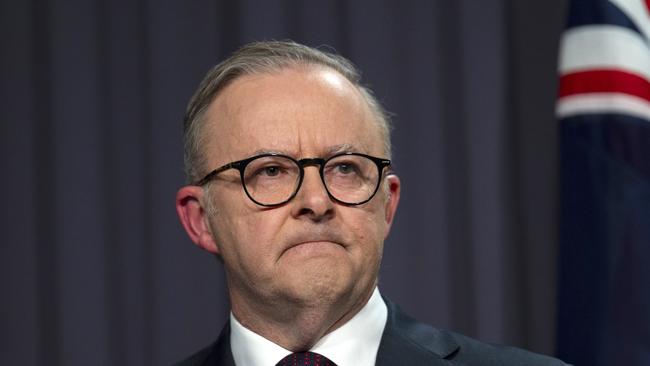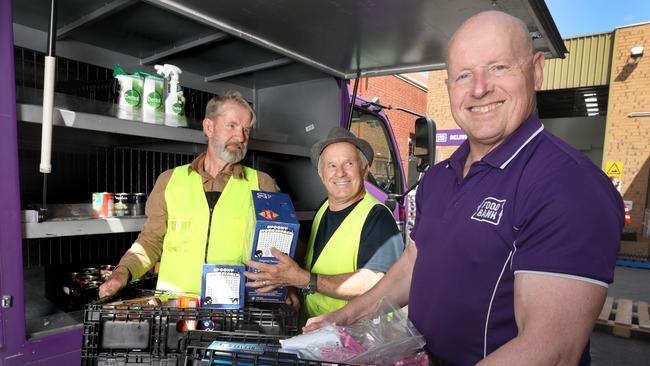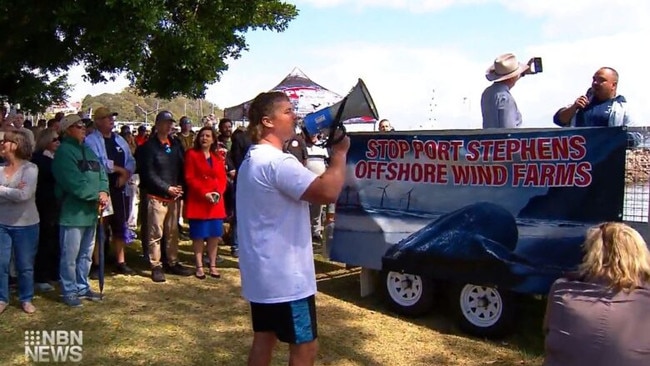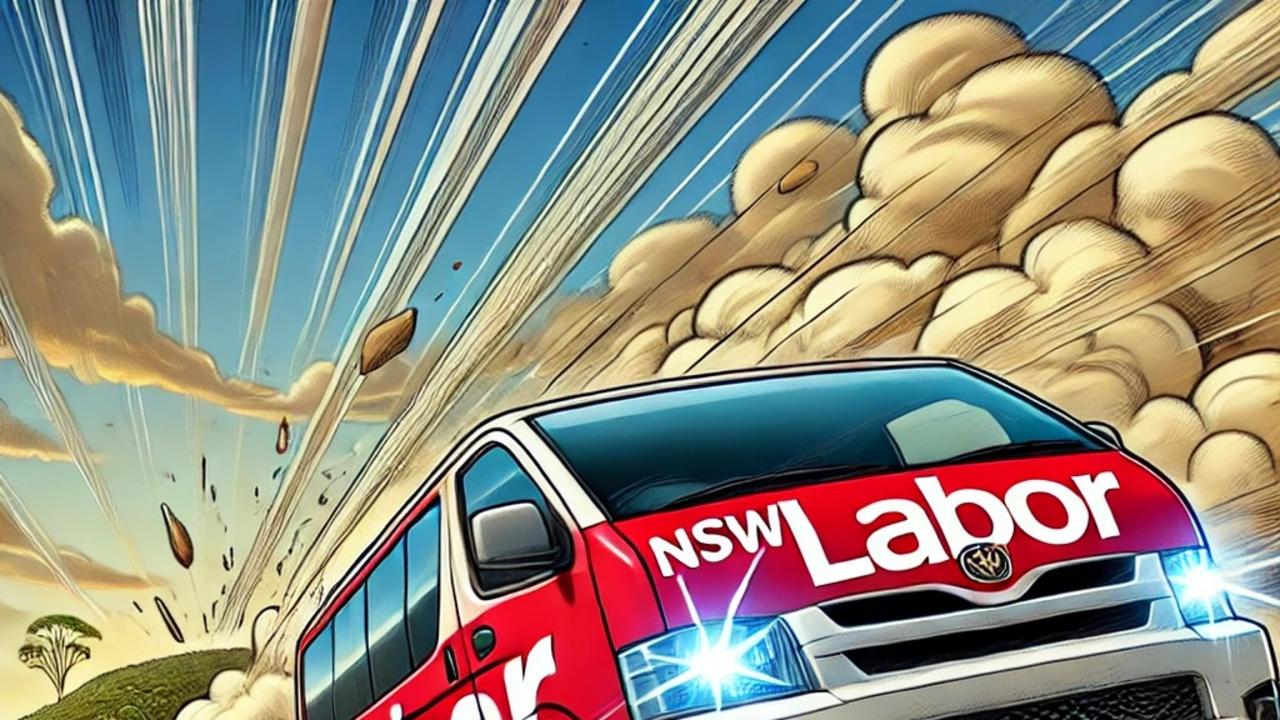James Morrow: A world of trouble is looming for Anthony Albanese
With mounting cost-of-living pressures hurting voters, Anthony Albanese cannot draw a line under the referendum and kick treaty and truth telling into touch, writes James Morrow.

Opinion
Don't miss out on the headlines from Opinion. Followed categories will be added to My News.
Well, we sure dodged a bullet on the Voice, didn’t we?
Far from being the modest and gracious request Anthony Albanese spent the first half of his first term in office pitched to us, we now have confirmation that many of those behind the project really embraced an agenda of bitterness and separation.
Whether they voted Yes or No on October 14, everyone should have a look at the anonymous open letter dropped last weekend by at least some of those behind the campaign.
It complained that “the people who came to our country in only the last 235 years would reject” the Voice.
So much for Bob Hawke’s line that in modern Australia, there must be no hierarchy of birth.

It continued: “It is the legitimacy of the non-Indigenous occupation in this country that requires recognition, not the other way around … our sovereignty has never been ceded.”
While plenty of people who hoped for a Yes vote may be disappointed, this is the language of separatism, not reconciliation.

The failed vote on the republic may or may not have broken the nation’s heart as Malcolm Turnbull famously said but in the wash-up the anti-monarchist forces never suggested the nation was illegitimate, just immature.
Speaking of the former prime minister — who once opposed the Voice before he supported it — Turnbull gave a far franker accounting of what went wrong, writing in the Guardian this week that “all of our constitutional history and experience shouted that the amendment was simply not achievable”.
Getting to the heart of the issue, Turnbull wrote that there was a “constant tension in the yes campaign, arguing on one hand the voice was just an advisory body, on the other that it would be a powerful, influential council which would make a decisive impact for good on Indigenous welfare and prospects.”

But while that all may be true, this same tension now threatens the Albanese government in ways Labor may not be able to cope with.
That tension can be summed up as follows.
On the one hand, the Australian electorate — including, notably, voters in many of his ministers’ western suburbs electorates — have comprehensively rejected the sort of American-style identity politics fight Albanese teed us up for with his election night commitment to Uluru.
Yet on the other, much like Kevin Rudd with climate change the last time Labor was in power, Albanese himself cannot draw a line under the referendum and kick treaty and truth telling into touch.
All of this leaves Albanese and Labor with a huge problem.
Having gone all in on the identity politics of the Yes campaign, Anthony Albanese has little to fall back on when it comes to the serious cost of living crisis hitting many of the same Labor strongholds that also went hard No on the Voice.
And voters know it.
The latest analysis of Newspoll data shows that the Prime Minister has lost paint in South Australia and Queensland, as well as with male and younger voters.
While there is also a lot in the numbers to worry the Coalition, the figures also show that Albanese’s net approval ratings have fallen flat, to dead zero.
Even more worrying for the government, pollster Roy Morgan said that post-Voice, ALP support had fallen beneath the Coalition.

One poll, perhaps, and maybe an outlier. But the reasons for the declining support can be traced to more than just the referendum.
This week anti-hunger charity Foodbank revealed that over 3.7 million households across Australia were suffering “food insecurity”.
Meanwhile over 2023 and 2024 well over a million households — many in outer suburbs in western suburbs — have gone over or are facing the dreaded mortgage cliff as their cheap fixed rates loans end and roll over to market rates of six or seven per cent or more.
In opposition, this would be the sort of situation that would play to Labor’s strengths.
Yet in its pursuit of the Voice (and much else besides), Labor has abandoned its heartland with its practical day to day concerns as it sandbags inner city seats being assaulted from the radical left by the Greens.
To put it another way, the party of the working, aspirational and small business classes is now seen as the party of Yes-voting elites who smugly clap each other on the back via LinkedIn.
The government is quick to point to a grab back of cost of living measures (an energy handout here, cheaper medicines there) but with food inflation running at something like 7.5 per cent and a hundred bucks barely buying a sack of the basics at Coles people need more.
And this is before power prices heading into what loos by all accounts a long, hot summer with the very real prospect of power brownouts.
No one believes that $275 promised during the election is ever coming back to us, and not many before genuinely think that jamming more renewables and transmission lines and batteries into the system will do anything to moderate price hikes.
Mortgage belt power hikes and the environmental impacts of the so-called clean energy transition on coastal and farming communities are, the Coalition believes, sleeper issues that will come to the fore over the coming year, making the opposition competitive.





